19 awarded with nation's highest honors for scientific, technological advances
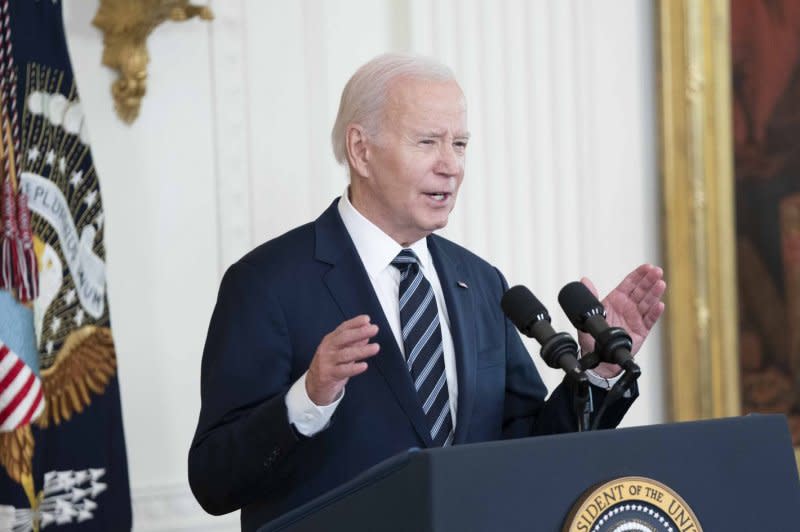
- Oops!Something went wrong.Please try again later.
- Oops!Something went wrong.Please try again later.
- Oops!Something went wrong.Please try again later.
Oct. 24 (UPI) -- President Biden bestowed the nation's highest scientific and technological accolades on nearly two dozen individuals during a White House ceremony Monday, recognizing their exemplary achievements in their respective fields.
"The National Medal of Science is given for outstanding contributions to the knowledge -- to knowledge in the sciences, and the National Medal of Technology and Innovation for outstanding contributions to the promotion of technology for the improvement of the economic, environmental, and social and -- and social well-being of the United States," the president said.
Biden presented nine individuals with the National Medal of Science, an award given for exceptional contributions across various scientific fields. Ten individuals also were given the National Medal of Technology and Innovation, which acknowledges American innovators for their contributions to the nation's economy and quality of life.
The medal recipients have a wide-ranging list of accomplishments that include breakthroughs in life-saving medical treatments, solutions to help combat the opioid epidemic, methods to enhance food security and more.
Biden said their achievements serve as inspiration for future generations of American thinkers.
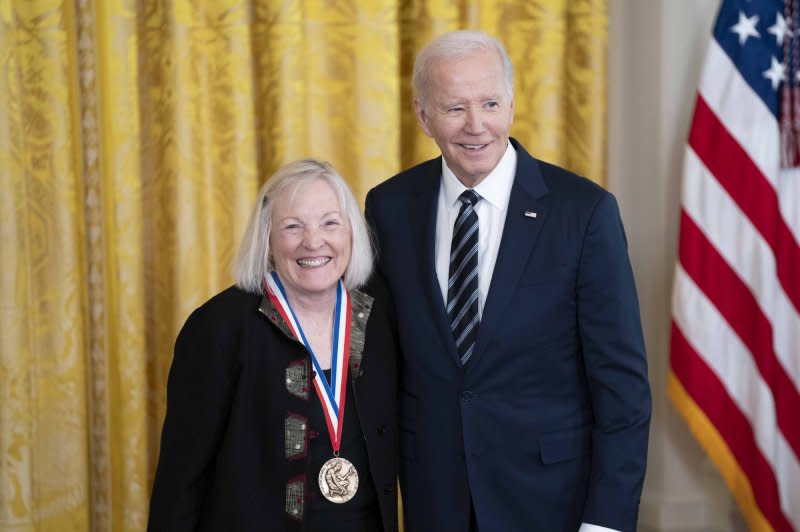
Among the science honorees was Shelley Taylor, a UCLA distinguished professor emeritus of psychology, who was acknowledged by the president for her "pioneering research on mental health and the influence of human connections."
Her work helped shed light on the importance of cognitive bias in social interactions, and she is well-regarded for her substantial contributions to comprehending the effect of stress on our overall health.
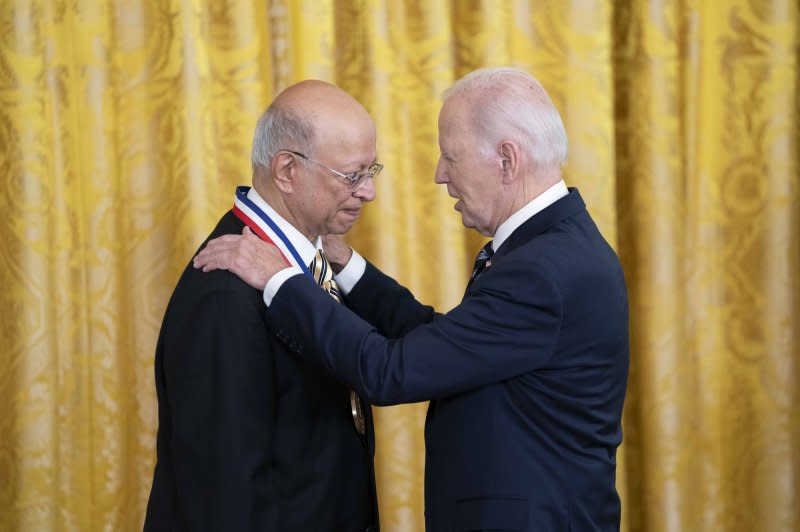
"Her work showed that optimism, self-esteem, and strong relationships improve the health of people with cancer, diabetes, and other diseases, helping establish the fields of social cognition, health psychology, and social neuroscience, and increasing our nation's wellbeing," Biden said during the presentation.
Steven A. Rosenberg, M.D., Ph.D., an immunotherapy trailblazer, was also among those recognized Monday. He was given a National Medal of Technology and Innovation for his role in advancing a treatment method that harnesses the patient's immune system to combat cancer.
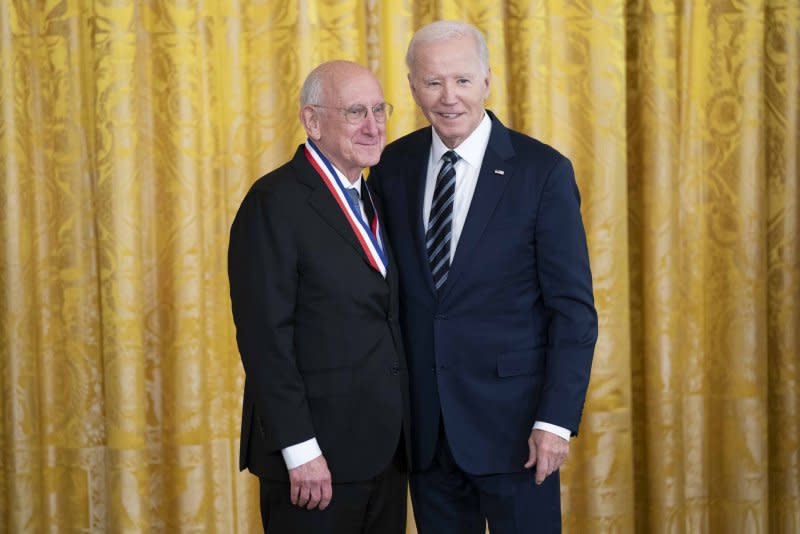
"By leading the development of the first effective immunotherapies, he has saved countless lives and inspired a generation of scientists," Biden said. "His work powerfully illustrates that we can do big things as Americans."
Rosenberg's research helped lead to the first cancer immunotherapy treatment approved by the U.S. Food and Drug Administration.
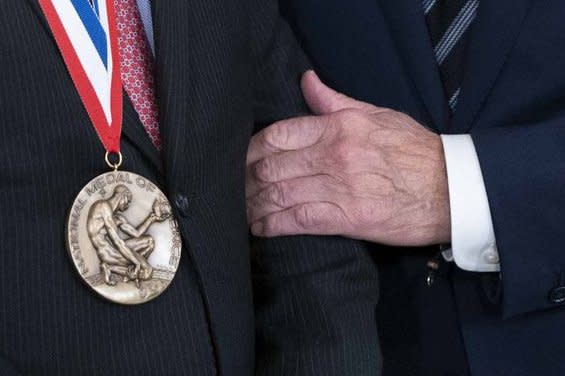
Ashok Gadgil, distinguished professor emeritus of civil and environmental engineer, was awarded the National Medal of Technology and Innovation for his cost-effective solutions for challenges in the developing world.
"His innovative, inexpensive technologies help meet profound needs, from drinking water to fuel-efficient cookstoves," Biden said of Gadgil. "His work is inspired by a belief in the dignity of all people and in our power to solve the great challenges of our time."
Gadgil's notable achievements include the invention of safe drinking water technologies, such as UV Waterworks, and an advanced arsenic removal technology.
Other recipients of recognition include:
Recipients of the National Medal of Science
Huda Akil, University of Michigan
Barry C. Barish, California Institute of Technology
Gebisa Ejeta, Purdue University
Eve E. Marder, Brandeis University
Gregory A. Petsko, Harvard Medical School, Brigham & Women's Hospital
Myriam Sarachik, (posthumously) The City College of New York
Subra Suresh, Massachusetts Institute of Technology, Brown University
Shelley E. Taylor, University of California, Los Angeles
Sheldon Weinbaum, The City College of New York'
Recipients of the National Medal of Technology and Innovation
Mary-Dell Chilton, Syngenta Biotechnology, Inc.
John M. Cioffi, Stanford University, ASSIA, Inc.
Rory A. Cooper, University of Pittsburgh, U.S. Department of Veterans Affairs
Ashok Gadgil, University of California, Berkeley, Lawrence Berkeley National Laboratory
Juan E. Gilbert, University of Florida
Charles W. Hull, 3D Systems
Jeong H. Kim, Kiswe Mobile, Inc.
Steven A. Rosenberg, National Cancer Institute
Neil Gilbert Siegel, University of Southern California
James G. Fujimoto and Eric Swanson, Massachusetts Institute of Technology and David Huang, Oregon Health & Science University (team)
"You all are so damn impressive," Biden said amidst a smattering of laughter. " No, I really mean it. Think of how you're literally changing the world for the better. Thank you for what you've done so far. You've saved people's lives. You've changed the way we look at the world, and you made it better. I don't know that anybody could ask for anything more.Thank you, thank you, thank you. And God bless you all."
As the ceremony was ending and Biden was departing the podium he was asked by a reporter is humanitarian aid is getting into Gaza fast enough.
"Not fast enough," the president quipped.

